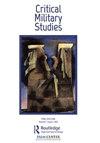On temporality and morality: negotiating POW survival in current protracted wars
Q1 Arts and Humanities
引用次数: 1
Abstract
ABSTRACT This article juxtaposes the procedures and narratives by which US and Israeli political cultures mediate situations of prisoners of war (POWs) during protracted wars. In protracted wars, repatriation is independent of reconciliation processes, with no international contracts governing the ethics of asymmetric prisoner exchange. Empirically, this article examines political cultures by analyzing news reports of Bowe Bergdahl (USA) and Gilad Shalit (Israel), who were imprisoned and repatriated during the US war in Afghanistan, and the Israel/Palestine conflict, respectively. Theoretically, this article (1) Situates POW affairs as highlighting a contradiction between two ideals: casualty aversion and self-sacrifice. (2) Relates POW affairs to scholarship on military-to-civilian transitions, and harnesses van Gennep’s phases of separation, liminality and reintegration, to analyze transitions as experiences of collectives, and not of soldiers. The analysis shows that US media accounts depict both the war in Afghanistan and the three phases of transition as controlled by individuals’ actions. Israeli accounts, by contrast, employ passive terminology when mediating both conflicts and POW affairs. Both political cultures develop temporal pattens to regulate the mutual obligations pertaining to soldiers, publics and states: a lingering military trial in the USA, and a new conceptualization of abduction in Israel. Arguing that temporality and morality are interlinked due to the open duration of current conflicts, this article suggests a definition of protracted wars that highlights this reciprocity between open-endedness, disrupted ceremonies, and moral changes: from rescuing soldiers to questioning the convention of obligatory rescue.论时间性与道德性:当前持久战中的战俘生存谈判
摘要本文并置了美国和以色列政治文化在旷日持久的战争中调解战俘处境的程序和叙事。在旷日持久的战争中,遣返独立于和解进程,没有关于不对称交换囚犯道德的国际合同。本文从实证的角度,通过分析Bowe Bergdahl(美国)和Gilad Shalit(以色列)的新闻报道来考察政治文化,他们分别在美国阿富汗战争和以色列/巴勒斯坦冲突期间被监禁和遣返。从理论上讲,本文(1)将战俘事务定位为两种理想之间的矛盾:伤亡厌恶和自我牺牲。(2) 将战俘事务与军事到文职过渡的学术联系起来,并利用范根内普的分离、边缘化和重返社会阶段,将过渡分析为集体的经历,而不是士兵的经历。分析显示,美国媒体的报道将阿富汗战争和过渡的三个阶段都描述为受个人行动控制。相比之下,以色列的叙述在调解冲突和战俘事务时使用了被动的术语。这两种政治文化都发展了时间模式来规范与士兵、公众和国家有关的相互义务:在美国挥之不去的军事审判,以及在以色列对绑架的新概念。由于当前冲突的公开持续时间,时间性和道德是相互关联的,本文提出了持久战的定义,强调了公开性、仪式中断和道德变化之间的互惠关系:从营救士兵到质疑强制性救援的惯例。
本文章由计算机程序翻译,如有差异,请以英文原文为准。
求助全文
约1分钟内获得全文
求助全文
来源期刊

Critical Military Studies
Arts and Humanities-History
CiteScore
1.90
自引率
0.00%
发文量
20
期刊介绍:
Critical Military Studies provides a rigorous, innovative platform for interdisciplinary debate on the operation of military power. It encourages the interrogation and destabilization of often taken-for-granted categories related to the military, militarism and militarization. It especially welcomes original thinking on contradictions and tensions central to the ways in which military institutions and military power work, how such tensions are reproduced within different societies and geopolitical arenas, and within and beyond academic discourse. Contributions on experiences of militarization among groups and individuals, and in hitherto underexplored, perhaps even seemingly ‘non-military’ settings are also encouraged. All submitted manuscripts are subject to initial appraisal by the Editor, and, if found suitable for further consideration, to double-blind peer review by independent, anonymous expert referees. The Journal also includes a non-peer reviewed section, Encounters, showcasing multidisciplinary forms of critique such as film and photography, and engaging with policy debates and activism.
 求助内容:
求助内容: 应助结果提醒方式:
应助结果提醒方式:


